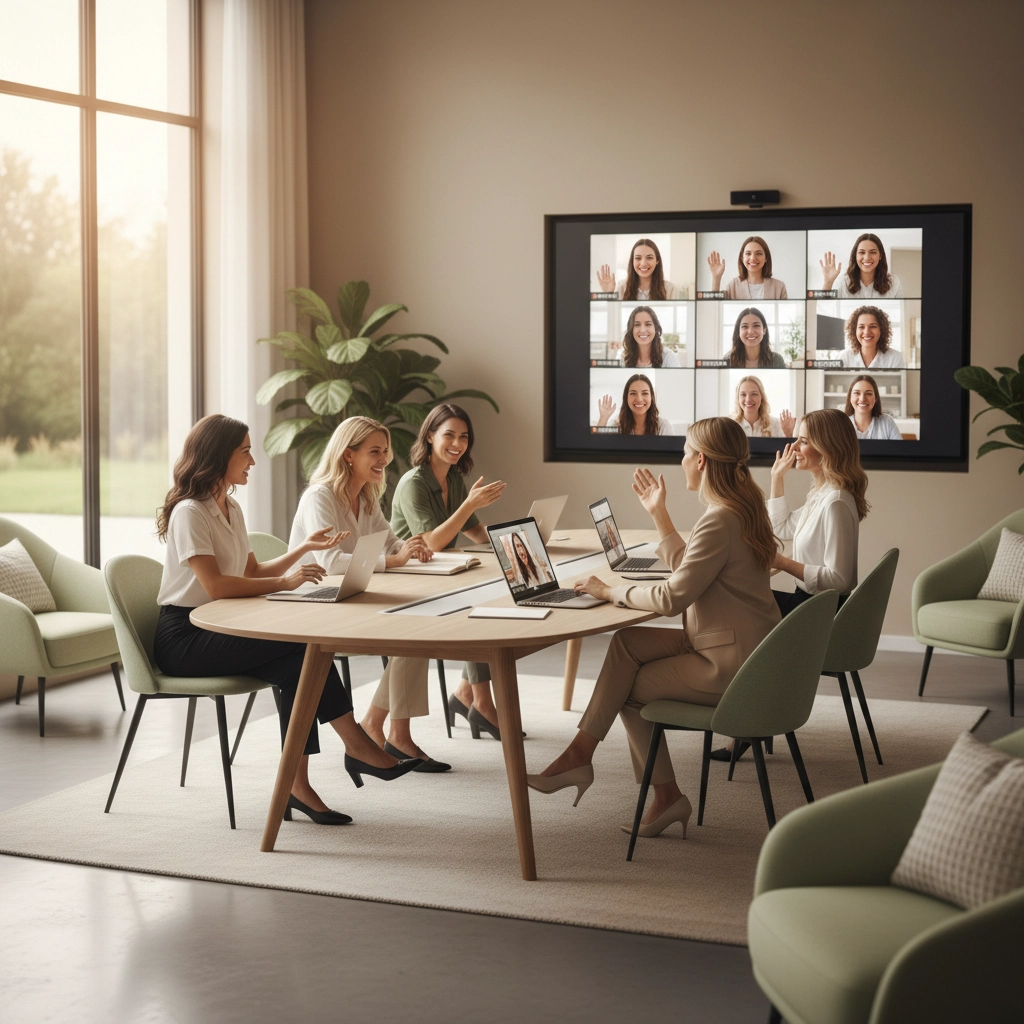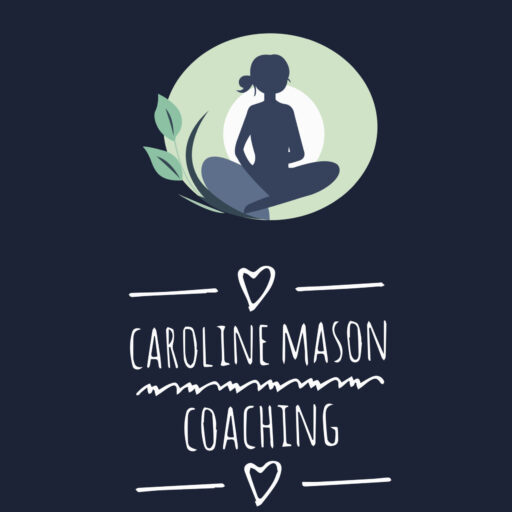I've spent countless hours working with leaders who feel like they're juggling flaming torches when it comes to managing hybrid teams. The energy is there, the talent is exceptional, but something feels disconnected. If you're leading a team that spans home offices, co-working spaces, and traditional offices, you're not alone in feeling like you need a completely new playbook.
The truth is, hybrid team coaching isn't just about managing logistics: it's about creating genuine human connection and unleashing creativity across any distance. Through my work with leaders across various industries, I've discovered that the most successful hybrid teams don't just survive the complexity; they thrive because of it.
Why Hybrid Team Coaching Changes Everything
Traditional team development approaches often fall short in hybrid environments because they were designed for a world where everyone sat in the same building. But here's what I've learned: hybrid teams actually have superpowers waiting to be unlocked. When you coach them intentionally, you tap into diverse perspectives, flexible thinking, and innovative problem-solving that co-located teams often struggle to achieve.
The challenge lies in building trust when you can't read body language in a corridor conversation, and fostering creativity when spontaneous brainstorming feels impossible. That's where deliberate, human-centred coaching transforms everything. "Human-centric leadership is now foundational for organizational resilience in 2025."

Tool 1: The Connection Check-In Framework
I always start with this because trust begins with truly seeing each person. Create a structured five-minute opening to every team interaction where each member shares one professional highlight and one personal moment from their week. The magic happens when remote team members feel just as valued and visible as those sitting in the conference room.
This isn't small talk: it's strategic relationship building. When people feel genuinely known, they contribute more authentically and take creative risks that lead to breakthrough thinking. Employees want leaders who enable, listen, adapt, and empower—not just show compassion.
Tool 2: The Rotating Leadership Challenge
Every fortnight, assign a different team member to lead a problem-solving session for a real workplace challenge. This builds trust by demonstrating that everyone's expertise matters, regardless of where they're located. I've watched quiet remote workers become confident facilitators and seen office-based team members gain deep appreciation for their colleagues' unique perspectives.
The key is providing clear frameworks and support, so the experience feels empowering rather than stressful.
Tool 3: Virtual Innovation Sprints
Design focused 90-minute sessions where mixed location teams tackle creative challenges together. Use breakout rooms strategically, mixing in-person and remote participants, then bring everyone back to build on each other's ideas.
I love this approach because it levels the playing field: introverted remote workers often thrive in these structured creative spaces, while extroverted office workers learn to listen differently when the format requires it.

Tool 4: The Trust Triangle Exercise
This involves three-person accountability partnerships that rotate monthly, with each triangle containing people from different locations. Partners check in weekly, share one professional challenge, and offer specific support. The structure creates intimate connections that strengthen the broader team fabric.
What makes this powerful is how it builds confidence. When team members know someone has their back, they're willing to take the creative risks that lead to innovation.
Tool 5: Asynchronous Storytelling Projects
Launch collaborative projects where team members contribute different chapters to case studies, client success stories, or process improvement narratives. Each person adds their piece over several days, building on what others have created.
This approach honours different working styles and time zones while creating shared ownership of outcomes. I've seen teams discover creative solutions they never would have found in traditional brainstorming sessions.
Tool 6: The Assumption Challenge Protocol
Twice monthly, present the team with a business scenario and ask them to identify their assumptions, then deliberately challenge each one. Mixed-location teams excel at this because their diverse experiences naturally surface different perspectives.
The trust comes from creating psychological safety around being wrong, while creativity emerges from questioning what seems obvious.

Tool 7: Skill-Sharing Circles
Monthly sessions where team members teach each other something valuable: whether it's a technical skill, a life hack, or a unique perspective from their role. Remote workers share their screens, office workers use whiteboards, and everyone learns from everyone.
This builds trust by positioning every team member as both teacher and student, while fostering creativity through cross-pollination of ideas.
Tool 8: The Daily Appreciation Anchor
Implement a simple system where one team member each day shares a specific appreciation for a colleague's contribution, rotating through the entire team. Use your team chat platform to make it visible to everyone.
This isn't about forced positivity: it's about training attention on what's working well. When people feel genuinely valued, they contribute more creatively and support each other's risk-taking.
Tool 9: Virtual Coffee Roulettes with Purpose
Pair team members from different locations for informal 15-minute conversations every other week, but give each pairing a gentle prompt: "What's one thing you're curious about?" or "What's working really well for you right now?"
These conversations build trust through genuine curiosity while often sparking unexpected creative collaborations.
Tool 10: The Collective Wisdom Documentation
Create a shared digital space where team members contribute insights, lessons learned, creative solutions, and helpful resources in real-time. Everyone can add to it, build on each other's contributions, and search for wisdom when facing challenges.
This builds trust by demonstrating that every team member's experience matters, while creativity flourishes as people connect dots between seemingly unrelated insights.

Making It Work in Your Context
The beauty of these tools lies in their adaptability. You might use three of them consistently while rotating others based on your team's evolving needs. What matters most is the intention behind them: creating genuine connection and psychological safety where creativity can emerge naturally.
Start with the tools that feel most aligned with your team's current dynamics, then gradually introduce others as trust deepens. I've found that teams often surprise themselves with how creative and connected they become when given the right structures and support.
Implementation Success Strategies
Measure your success through engagement levels, the quality of ideas being generated, and how often team members seek each other out for collaboration. Notice whether remote workers are contributing as actively as office-based colleagues, and whether creative solutions are emerging from unexpected combinations of perspectives.
Remember, this is about progress, not perfection. Some sessions will feel magical, others might feel flat: that's normal. Consistency in creating these connection and creativity opportunities is what transforms team culture over time.
Your Next Steps
Hybrid team coaching isn't just a nice-to-have: it's essential for unlocking the extraordinary potential that exists when diverse minds collaborate across any distance. The teams that master this approach don't just adapt to hybrid work; they become significantly more innovative and connected than their traditional counterparts.
If you're ready to transform your hybrid team's dynamics and unleash their creative potential, I'd love to support your journey. Through my one-to-one coaching sessions and targeted leadership development programmes, I help leaders develop the specific skills needed to coach hybrid teams with confidence, in a human-centred way.
Let's work together to create the psychological safety and structured creativity that allows your team to thrive, regardless of where they're located. Your team's breakthrough is waiting: sometimes it just needs the right framework to emerge.
Ready to unlock your hybrid team's potential? Contact me to explore how personalised coaching can transform your leadership approach and create the connected, creative team culture you're seeking.
Ready to build trust and creativity across your mixed-location team?
If you're exploring bespoke hybrid team coaching programmes — or want practical, hands-on team-building support that fits your context — let's talk.
Book a free 15-minute discovery call to discuss what your team needs right now and how we can design a high-impact plan together.
With light and warmth,


